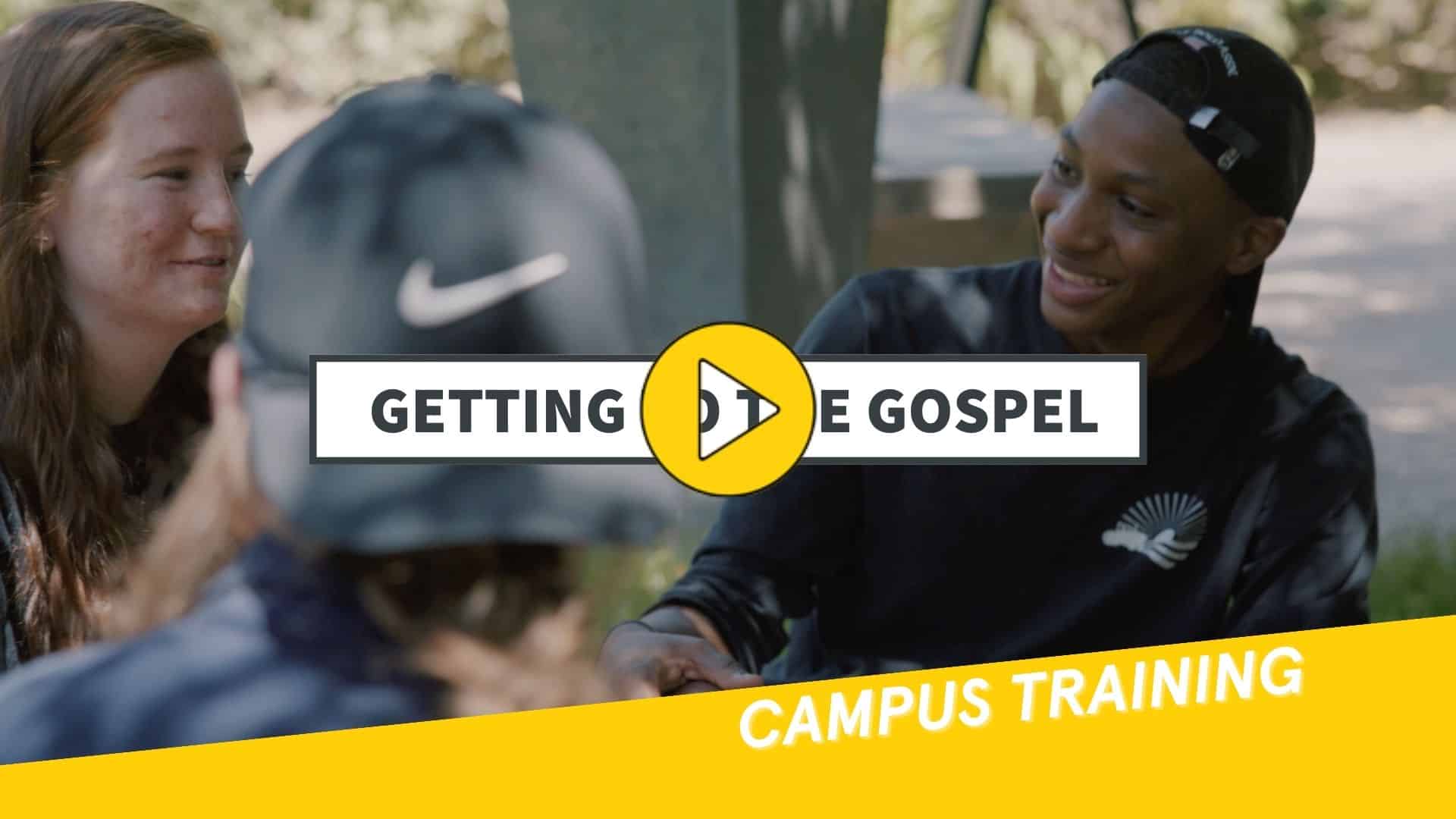When Jesus ascended into heaven, He gave His followers a clear command known as the Great Commission: “Go, therefore, into all the world and make disciples of all nations…” (Matthew 28:19a). This commission is a mission to bring people from every background and culture to worship and follow Jesus. But how exactly do we go about making disciples?
While we can gain insights from the Gospels and the book of Acts regarding Jesus’ interactions with His disciples and the growth of the early church, there is not a step-by-step manual for the day-to-day work of making disciples. This may seem challenging, but it also makes our mission all the more beautiful and dynamic.
Rather than relying solely on a specific method, making disciples is ultimately about personal transformation and building relationships. It is about being a person who has encountered Jesus and allowing that encounter to shape us, while also reaching out to others and inviting them to experience the same transformation.
While there may be challenges in the process of making disciples, it is not just about following a rigid formula. Discipleship is about being a living example of Christ’s love and grace, sharing our faith, and investing in meaningful relationships with others. It is about walking alongside people, showing them the way to Jesus, and helping them grow in their own faith journey.
We need relationships where we can be honest about our wins and losses. We need to help each other in such a way that both individuals are the humble servant and the wise teacher. This is how Jesus leads. This is how Jesus makes disciples.
What Does It Take To Make Disciples?
GOSPEL Care Ministries says it simply,
Discipleship is helping one another abide in Christ.
The two key pieces in that definition are helping one another and abide in Christ. We can only help others abide in Christ if we are doing it ourselves. For our discipleship to be fruitful and enjoyable, discipleship relationships cannot be for the benefit of just one person. They need to be mutually beneficial.
Help One Another
Many of us may believe a lie about discipleship, that the leaders in a discipling relationship must be exceptional or the “expert.” This kind of relationship might make sense in sports or at work, but who really can say they are an expert at living like Christ?
We do not need discipling relationships where one is the “professional” and the other is the “amateur” because discipleship is not just teaching people a moral code or rules. We want disciples who see the gospel on repeat in our hearts. To do this, we need relationships where we can be honest about our wins and losses. We need to help each other in such a way that both individuals are the humble servant and the wise teacher. This is how Jesus leads. This is how Jesus makes disciples.
I still remember having been a Christian for only six months when a man much more mature in the faith sincerely invited me to give him honest feedback on a talk he gave. I will never forget that moment. I felt so honored that he valued my thoughts and empowered me to share them.
There have been many occasions when people I was discipling would pray for me after hearing about my struggles in life. The sense of dignity and worth instilled in them is priceless and it was good for me to humbly share my pain with them.
As we go about making disciples, we want to remember we all have something to give to one another. It will take vulnerability and trust for those we are discipling to really know us, but it will be worth the risk.
Abide in Christ
To help students stay close to Christ, we need to encourage them to be authentic. We need to create spaces where people can openly share their honest stories and trust one another. Discipleship goes beyond simply teaching people about God; it is about fostering relationships where individuals can experience a deeper connection with Him.
To do this, we must be able to “hold” their stories, giving them the freedom to be where they are. Any impulse you feel to “fix” anyone who shares a hard truth needs to be restrained. Instead, we need to first empathize with them. This will help us start with grace and then invite one another to hope in the promises of God.
I had a student who was eager to share their story with me. We sipped on coffee as he shared his story of experiencing homelessness and neglect and abuse from his drug-addicted father. When he was 9 years old, he prayed to God for help, but was hurt because he felt God ignored his call. Hearing his story, I knew there was no “fixing” his pain.
I was tempted to provide the young man with theological responses to his struggles. However, I realized that before diving into intellectual discussions, my priority was to genuinely care for him. I needed to empathize with the weight of his experiences and acknowledge the validity of his question: does God truly exist?
After I attuned my heart to his story, I could more clearly and sincerely point him to the truths in the Bible. Jesus was homeless. Jesus was abused. He was ignored and crushed by his Father on the cross. He could relate experientially.
As the Father has loved me, so have I loved you. Abide in my love. If you keep my commandments, you will abide in my love, just as I have kept my Father’s commandments and abide in his love. These things I have spoken to you, that my joy may be in you, and that your joy may be full (Jn. 15:9-11 CSB).
We can foster a culture of authenticity and truth by focusing on abiding in Jesus at any moment we are with students. Think about your small group environment, one-on-one meetings, and even large group gatherings and consider whether these spaces can be described as real and truth-telling. Are you and the students sharing real-life experiences?
Making disciples is less about a certain method or specific practices, but more about being transformed into a person that experiences Jesus and brings others along with them.
3 Essentials for Disciples
There are many options for content you can use for your disciples. Cru often recommends Thrive Studies for a simple, useable, small group curriculum. While content is important, there are some key practices that we want to model for our disciples no matter what content we decide to use.
Anytime we meet with students to study God’s word together, there are some essential rhythms we want them to practice regularly:
1) Receive the Word
As we read the word of God, His Spirit is actively giving life to those who will receive it. A good practice we can use to help prepare ourselves and the students we are engaged with is: “Open your heart to God before you open the Word of God. You can spend 2-5 minutes processing where you are emotionally, mentally, and physically.”
We may see things in our lives that bring us joy or cause us stress. Be open with each other about joys and concerns. You can start and invite any others in the group to share too. Once we know where we are, God’s truth can uniquely encourage and invite us to trust him and respond in faith.
Let’s say you start a Bible study group on campus. While sharing where each person is, a student realizes she was feeling anxious about an upcoming conversation with her mom. She was particularly afraid of how her mom might respond. Then maybe she read something like Psalm 46 during the Bible study…
God is our refuge and strength, a very present help in trouble. Therefore we will not fear…
Because she took time to connect with the fears she had about the conversation with her mom, this passage is deeply meaningful to her specific circumstances. She was ready to receive God’s truth because she took a little time to recognize how she was doing and then share it with the group.
2) Pray the Word
After we receive God’s word, we can come to Him in prayer and invite Him to change us. This might seem like the one practice to skip over, but this is where greater intimacy and deeper life change is found.
We could receive a truth from God’s word and we could even live it out. However, if our heart remains unchanged, we will only be going through the motions. Real-life change comes when our hearts align with God’s so much that we do not just obey because we have to. We begin to obey because we want to.
In our example (the girl who was anxious about talking to her mom), she could ask God to help her understand He is with her in every situation and she does not need to fear. She may even invite Him to help heal some feelings she has toward her mother. As she invites God to change her, maybe she will begin to recognize how she has added to the tension with her mom or how mistrust of her parents has misshaped how she sees God.
God can do more than we can think possible when we invite His Spirit to have full access to our hearts and minds.
3) Live the Word
A disciple obeys the commands of Jesus. This is how we abide or stay with Jesus. Every time we open God’s Word with a disciple, be ready to help call them into action. Help them see how God is challenging them.
It could be a promise to believe, a specific action to take, or a scripture to memorize. Make sure you are trusting God to give you the wisdom to help them see their next steps. Also, never be afraid to ask them how they did putting God’s word into action the next time you meet. This is not an attempt to be pushy or to shame them; to be consistent and provide an example, invite them to follow up with you on how you also need to live the word.
When we attune our minds and align our hearts with His, we will also need to adjust our lives. Disciples who abide in Jesus will show it through their words and actions. Always remind your disciples that living out the word includes showing it and sharing it with others; this means they will begin to be disciples who go out and make disciples.
Discipleship is Relationship
One of the most important elements in disciple-making is the life-on-life component. When making disciples, most of what is passed on is caught rather than taught. So you must invite students to be with you when you do the ordinary things of life, not just to do a Bible study.
Getting started in these relationships can be difficult and messy, like all relationships. It will take steps of faith and time. You may need help making a discipleship plan, but the most important thing is to be transformed by Jesus and share that transformation with others.
Next Step
Pray and ask God to show you individual students who are ready for a discipleship relationship. Write their names down, pray over them, and ask one to start meeting with you. Check out our Thrive Studies series "DISCIPLING OTHERS" to learn what to look for in a disciple and what to do when you first get together.
DISCIPLING OTHERS







